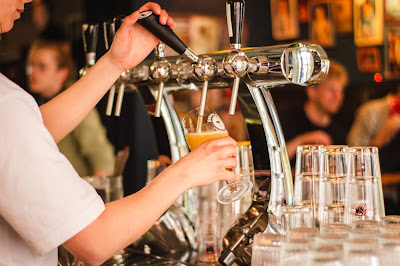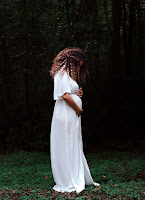New Life: My Pro-Life Conversion Story
My name is Chris, and I’m an alcoholic. Thankfully, a recovering one – though I was not a first-time success story.
I got sober through Alcoholics Anonymous, and my most daunting obstacle to working the program’s Twelve Steps of Recovery was embracing a higher power. In trying (and failing) to quit drinking for some time, I’d seen many alcoholic atheists become quick converts to religion upon drying out.
I watched, with envy, as lost souls seemed to summon loving deities that sustained their sobriety. So I did what any hopeless drunk would do: I attempted to short-order one for myself.
It didn’t work. Spirituality isn’t a “fake it ‘til you make it” type of thing. Conjuring up a god I didn’t believe in was disingenuous and, in my experience, recovery requires brutal honesty.
I was able to concoct no such deity, no interventionist god capable of personally arresting my alcoholism. I don’t buy the idea that God, in His or Her infinite wisdom, rescued a loser like me while leaving the schmuck on the next barstool to die. While other AA members were able to turn their will over to a capital-G God of their understanding, the best I could fathom is a lowercase one of my misunderstanding.
It was imperfect – but it was enough.
In the seven-plus years since my last drink, I have heard amazing stories of resilience – of people who were once hopelessly addicted and no longer are. So much of recovery is built on identification with other alcoholics, I believe, because few groups of people experience the sensation of being completely doomed… and then miraculously finding an escape hatch we never knew existed. We know both unsolvable compulsion and deus ex machina salvation.
One lesson I’ve learned in recovery is that people are incredibly durable. We can rise from near-total physical, financial and spiritual bankruptcy to become productive, even admirable members of society. Like microbes inexplicably living under the Antarctic ice shelves, or eyeless fish thriving in the lightless ocean depths, we adapt. We find a way.
Life finds a way. And when I realized that, I had found my Higher Power.
I had also found a heaping help of hypocrisy. Because once I realized life finds a way, a vociferously politically liberal like me had to come to terms with one simple fact: I could no longer support abortion rights without being a walking, talking contradiction.
That’s how recovery made me pro-life.
Second Chances, Second Thoughts
Let me back up, because the term “pro-life” typically has ifs and buts. To state my position clearly: I believe in the right to abortion in instances of rape (including statutory rape), incest and serious threat to the mother’s health, as well as when the fetus is inviable or has debilitating birth defects. I also believe in contraception, including Plan B – which does not end pregnancy but rather prevents its likelihood.
Those circumstances aside, I believe that a woman’s rights to privacy and dominion over her own body, though indeed important, do not outweigh the right of a budding life to exist. It’s that simple.
Despite the recent uproar over length-of-pregnancy abortion limitations, my position has nothing to do with trimesters, or heartbeats, or out-of-womb viability. I believe that life begins at conception, meaning that if something is en route to becoming a human being, I value its right to continue along that path more than anyone’s right to terminate it.
That’s what pro-life means to me: All things being equal, I err on the side of life over the right, or choice, to end it.
And per my once-recovery-stunting struggles with God, this position has nothing to do with religion. In fact, my agnosticism only strengthens my conviction that life on this Earth is precious. If this is all we get, there better be a tremendously convincing reason to take it – to take everything – away from an innocent being.
Everything is exactly what my alcoholism nearly took from me. I was not only unemployed, but unemployable. I was a liar, a thief, a manipulator who used people to use, period. My wife had one foot (at least) out the door on numerous occasions.
Everyone deserves a second chance; what I got was third, fourth and fifth ones. In succession, I failed to stay sober following AA meetings, intensive outpatient therapy and, finally, inpatient rehab. I was running out of options and running out of hope.
And then, after a cathartic DUI, I was done. The principles of recovery – admitting defeat and powerlessness, taking stock of my shortcomings, making amends – started to stick to a shell-shocked man-child. My recovery is the closest thing to a miracle as I’ve ever witnessed. I was doomed… and then suddenly I wasn’t.
They say recovery and politics don’t mix; in fact, AA’s Preamble expressly says so. But recovery and morality certainly do. And it is this moral awakening that led me, despite my otherwise cookie-cutter liberal leanings, gradually to pro-life. This isn’t about politics. This is a principle – one I can’t see myself ever abdicating.
Life – even a lost life, like mine – finds a way. Every time I attend an AA meeting, I enter a room full of people who were granted a second chance at life. Considering this, the thought of denying someone a first chance runs counter to everything recovery has taught and bestowed.
Life is a precious gift. I know this because I was given it twice.
[Today’s guest post by Christopher Dale is part of our paid blogging program. Photo credit: Louis Hansel on Unsplash.]



Leave a Reply
Want to join the discussion?Feel free to contribute!